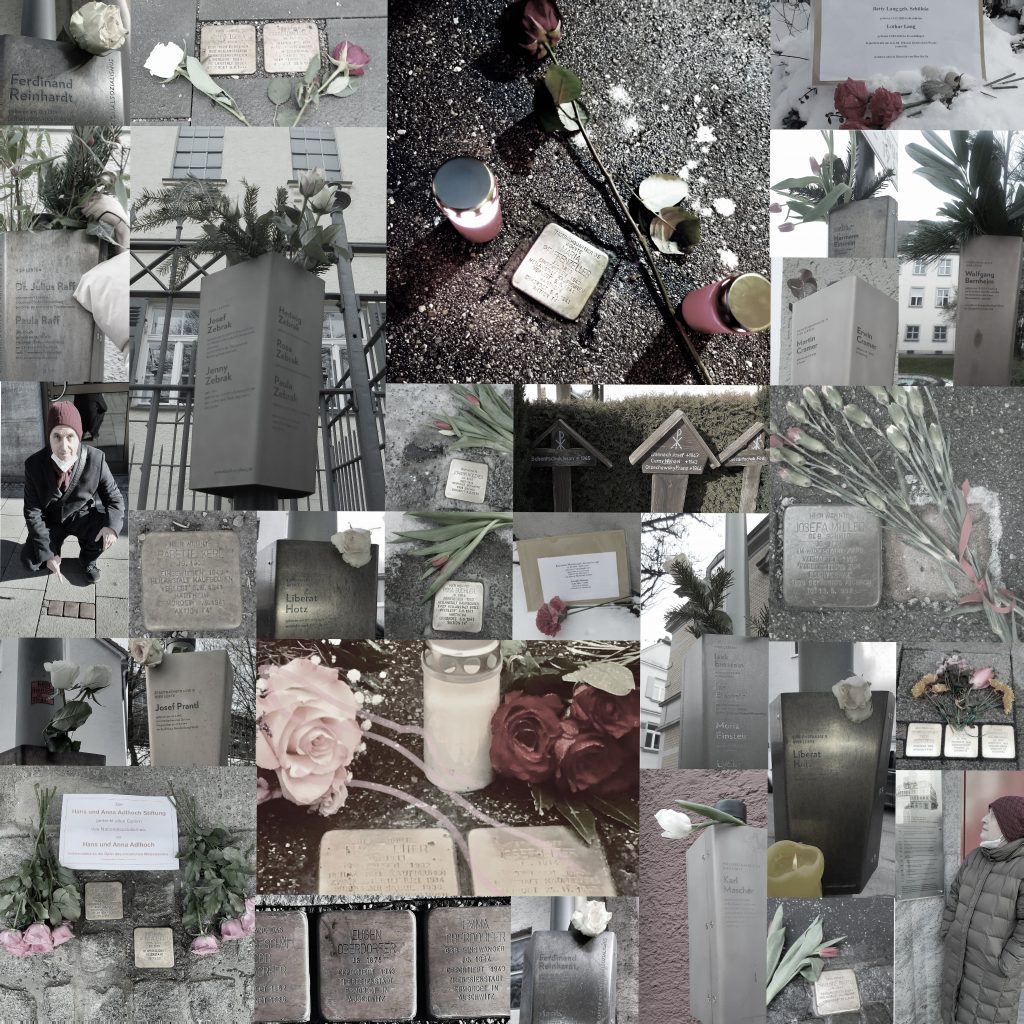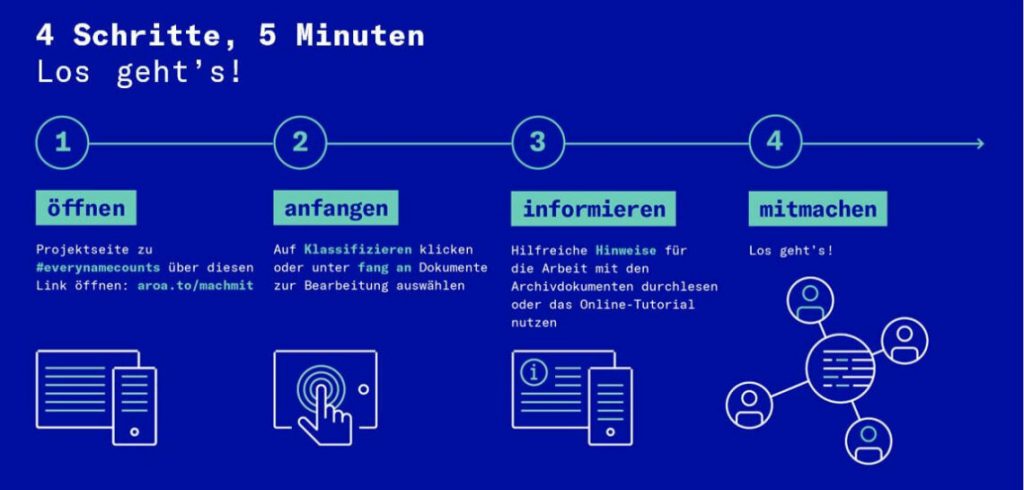Digital and decentralized
The liberation of the Auschwitz death camp by the Red Army on January 27, 1945, was declared an official day of remembrance for the victims of the Holocaust by Germany in 1996 and by the United Nations in 2005. In Augsburg, the ErinnerungsWerkstatt (Remembrance Workshop) has been inviting people to a commemoration ceremony every year since 2015, which focuses on the life stories of victims from the Augsburg area, compiled by students as well as members of the organizations involved in the commemoration work. This year, the Corona pandemic also changed the form of the commemoration. Actually, as an alternative to a central memorial event, it was planned to go in groups to various memorial signs in the city center and to remember the victims there. But even this reduced form was not possible. Therefore, all Augsburgers were called upon to individually visit memorial signs for the victims (Stolpersteine and memorial ribbons) and to document this personal commemoration with a photo. The numerous contributions were collected and published in the online memorial book of the ErinnerungsWerkstatt.
In Augsburg and worldwide
A film took the place of the presence commemoration. In addition to a greeting by Mayor Eva Weber and musical contributions by members of the Jewish Community and the Association of Sinti and Roma, it contains contributions by descendants of Jewish Augsburgers from all over the world – a beautiful development that would not have existed without the pandemic. The film can still be watched on Youtube.
#everynamecounts
In addition to local projects of (online) commemoration, the JMAS actively supports the global crowdsourcing initiative#everynamecounts of the Arolsen Archives. The goal of the project is to build the world’s largest online archive about those persecuted and murdered by the Nazi regime – thus creating a digital memorial for them. In order to make this project a reality, the initiators have called on all interested parties to digitally record names and data from already scanned historical documents of the archive.
Participation is as simple as it is described on the website: 4 steps, 5 minutes and off you go! The information on the first person we processed was as recorded in a few minutes. More will follow.
By 2025, all important information from the documents of the historical collection about prisoners of the concentration camps, about forced laborers of the Hitler regime and about so-called displaced persons should be made completely accessible online. Many are already participating in the creation of this digital memorial. In order to achieve this goal, however, the initiative is dependent on an even larger circle of active supporters, so let’s get going!

